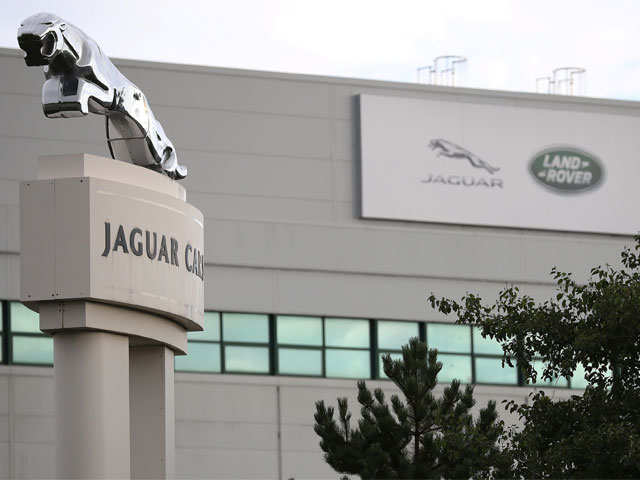INSUBCONTINENT EXCLUSIVE:
Mumbai: Fitch Ratings has revised the outlook on the Tata-owned marquee auto firm Jaguar Land Rover, which is facing Brexit and currency
headwinds, to negative from stable, but affirmed ratings on its debt at BB+.
After being the cash-cow for Tata Motors since 2010, JLR
reported a net loss in the quarter to June 2018 as the rising public aversion to diesel cars and the the increasing uncertainty over Brexit
has only confounded the problem for the company
Earlier this week JLR had warned of production cuts and more problems if Brexit did not materialise the way it has been planned.
The agency
cited a likely increase in JLR's negative cash flow in the next two years due to the falling profitability and the risks from Brexit as it
sells around 20 per cent of its volumes in the EU markets.
JLR's product portfolio is also heavily biased towards diesel, which accounts
for 90 per cent of its sales in Europe, while sales of diesel powertrain are falling in Europe.
"The outlook change to negative from stable
reflects our projections of further negative free cash flow in the next two years before gradually recovering to positive towards the end of
year to March 2021," Fitch said in a note from London Friday.
The agency cited falling profitability as another key reason for the downgrade
Higher production and labour costs burdened JLR's profitability but margins were particularly impacted by the rising depreciation costs
from recent investments.
"Adjusted pre-tax margin fell further in FY18 to 1.6 from 4.8 per cent in FY17 and 12.4 per cent in FY15 despite
Depreciation will continue to weigh on profitability but we expect this to be partly offset in the medium term by improvements in
productivity and savings in the manufacturing process," the agency said.
It sees the pre-tax margin to increase moderately to around 2 per
cent in FY19 and to recover gradually to 5-7 per cent through to FY22.
Blaming the rising investment burdening the free cash flow, the
report said the increased focus on EVs, autonomous driving and shared mobility is offsetting the gains from lower investments in other areas
and cited the recently launched I- Pace as a drag on group profitability and cash generation.
"Free cash flow fell significantly in FY18 to
negative 4.2 per cent and we expect a further decrease to around negative 6 per cent in FY19
Higher spending during 2019-21 than in our previous assumptions will keep cash flows in the negative territory until at least 2020," it
said.
The company has lined up a capex of around 4.5 billion pounds annually for the next many years.
On the impacts of Brexit, the report
notes that the company sells about 20 per cent of its vehicles in both continental Europe and the US, but builds them quasi-exclusively in
Britain, making it particularly exposed to Brexit issues and risks related to potential increased global tariffs.
"New assembly plants in
Slovakia and Brazil and the use of a subcontractor in Austria should somewhat ease the production imbalance in the medium term but it
remains heavily at risk in the short-term
A disorderly Brexit may significantly disrupt its supply chain and ability to manufacture and then sell its vehicles, in turn putting
additional pressure on earnings and cash generation compared with our current projections," it warned.
The company has a USD 500 million
bond maturing in February 2023 with a 5.625 coupon, and a USD 700 million issue priced at 4.125 per cent and maturing in December 2018,
another 400 million pound priced at 5 per cent in February 2022, another 400 milling pound (3.875 per cent) note for March 2023, USD 500
million (4.25 per cent) for November 2019; USD 500 million (3.5 per cent) for March 2020; 300 million pound (2.75 per cent) for January
2021.
It also has a 650 million euro issue priced at 2.2 per cent maturing in January 2024, 300 million pound (2.75 per cent) for January
2021; and USD 500 million (4.5 per cent) not for October 2027, Fitch noted in the report.
Despite all this, JLR has a healthy liquidity
which at end-June 2018 stood at 1.3 billion pounds, short-term liquidity deposits of 1.5 billion pounds, and committed undrawn facilities of
1.9 billion pounds maturing in 2022
Total reported debt at end-June 2018 was 3.9 billion pounds, including 0.7 billion pounds of short-term maturities.

